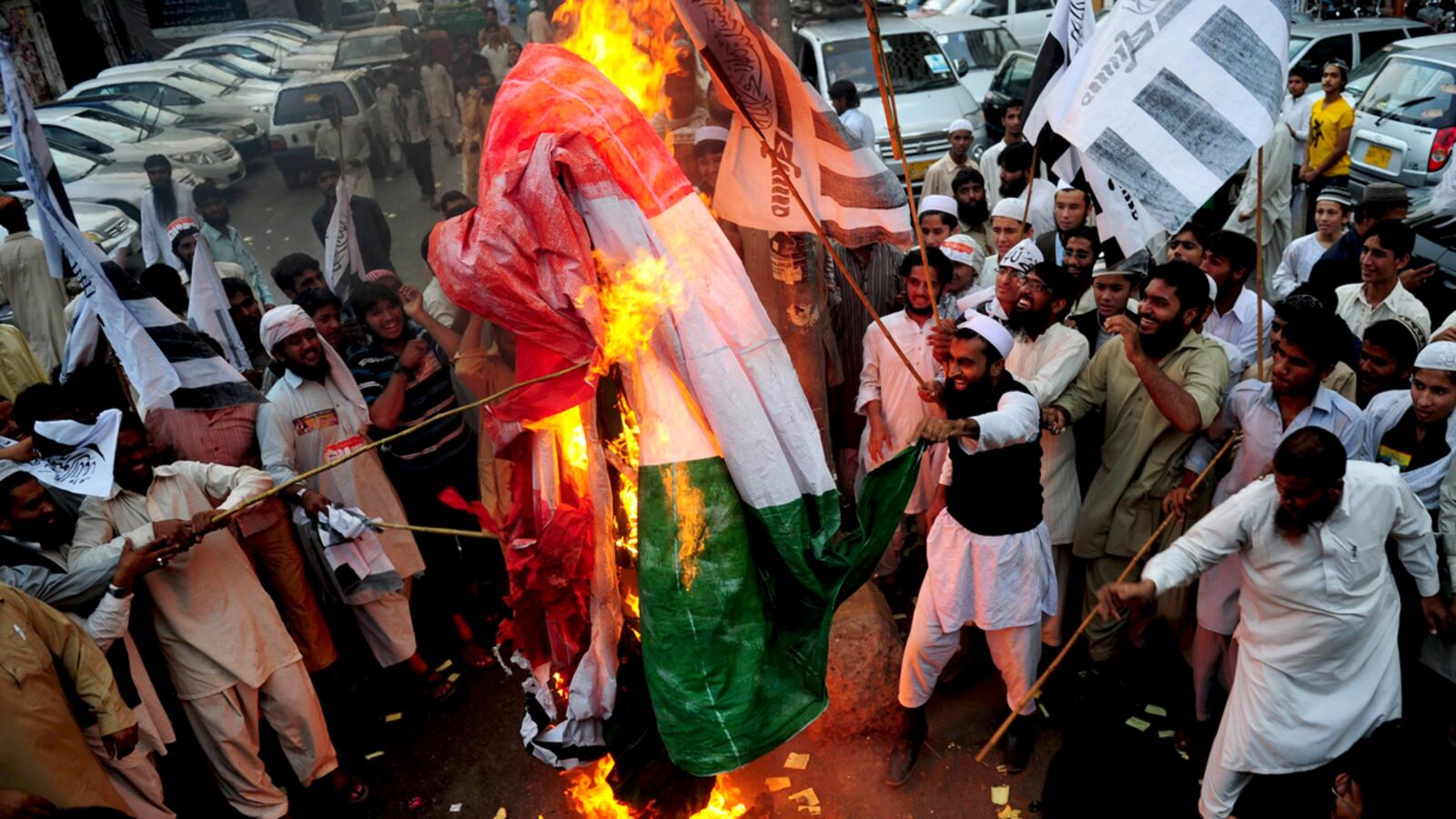Outraged Pakistanis, many of whom believe the NATO attack that killed 24 Pakistani soldiers at a border post Saturday
was “deliberate” and not a mistake—could do much to make things more difficult for the United States as it already has one foot out the door in Afghanistan. For example, Pakistan’s Inter-Services Intelligence (ISI) agency can raise the temperature in Afghanistan this winter by encouraging, if not enabling, the various Afghan insurgent groups to increase the aggressiveness of their targeted assassination campaign and hits on the capital city, Kabul.
This would mean trouble for the United States, which not only will lose all surge troops by the end of summer 2012, but also is considering plans to accelerate handing over security responsibilities to Afghan government forces. President Obama lacks the personal will and political capital to continue the Afghan war indefinitely. And now he faces the prospect of an intensification of violence in Afghanistan and an abortion of embryonic peace talks as U.S. troop numbers in the country fall.
Washington can mitigate the potential for increased Pakistani aggressiveness by acceding to the country’s demand for a joint investigation into the air strike—NATO is beginning its own investigation—and considering the possibility of compensating the victims’ families for their losses. This would allow both the political and military leadership, angered at the loss of their servicemen, to save face in front of a public that increasingly sees them as feckless after the Abbottabad raid against Osama bin Laden and a series of other national security disasters.
Furthermore, Washington can also use this tragedy to make a bolder push with Islamabad for a lasting resolution to the Afghanistan war. In October, Secretary of State Hillary Clinton made it clear that the administration now supports talks with all Afghan insurgent leaders, including Mullah Omar. This was a major step forward in building confidence with Islamabad, which has been working assiduously for the insurgent leadership to be recognized as legitimate political powerbrokers.

The Obama administration should, and in fact needs to, work to restore this positive momentum and mollify Islamabad—which already has decided to shut down U.S. ground supply routes into Afghanistan that run through Pakistan—suspend efforts to bring the Afghan Taliban to the negotiating table, and evict the CIA from a base in Baluchistan province that has been used to launch drone attacks in Pakistan’s tribal areas.
A senior U.S. government official, either Clinton or Obama, should reiterate the administration’s openness to talk to all Afghan insurgent groups and preference to work with the Pakistani government in reaching out to them. Affirmation of U.S. resolve for a negotiated settlement won’t eliminate terrorist and insurgent violence in Afghanistan and Pakistan, but it reduces the likelihood that such violence will rage out of control as critical firemen leave the scene.
More broadly, the United States and Pakistan need to start talking about what the region will look like once there are no U.S. combat troops on the ground. Their starting point is quite weak. Right now, there is little strategic convergence in U.S. and Pakistani visions for the region. Pakistan is allied with China and an alphabet soup of militant and terrorist organizations, including ones that kill coalition forces in Afghanistan. The United States has been tightening its embrace of Pakistan’s archrival, India, offering it the latest military hardware and civilian nuclear fuel.
With patient effort, Washington can help the Pakistani military, which maintains a hegemony over forming national security policy, change the way it views the world.
Washington can point to Beijing and show Islamabad a regime whose economic rise has made it a global power. It can make the case that while terrorism has effectively kept the U.S. on its toes in Afghanistan, the economic costs of terror in Pakistan have resulted in a weaker, less sovereign state that is dependent on foreign aid.
Getting Pakistan to completely abandon support of militants and terrorists in the region is a long shot, but the United States has little choice but to try to wean Pakistan away from it while it’s in town. Once the United States leaves, all bets are off.






